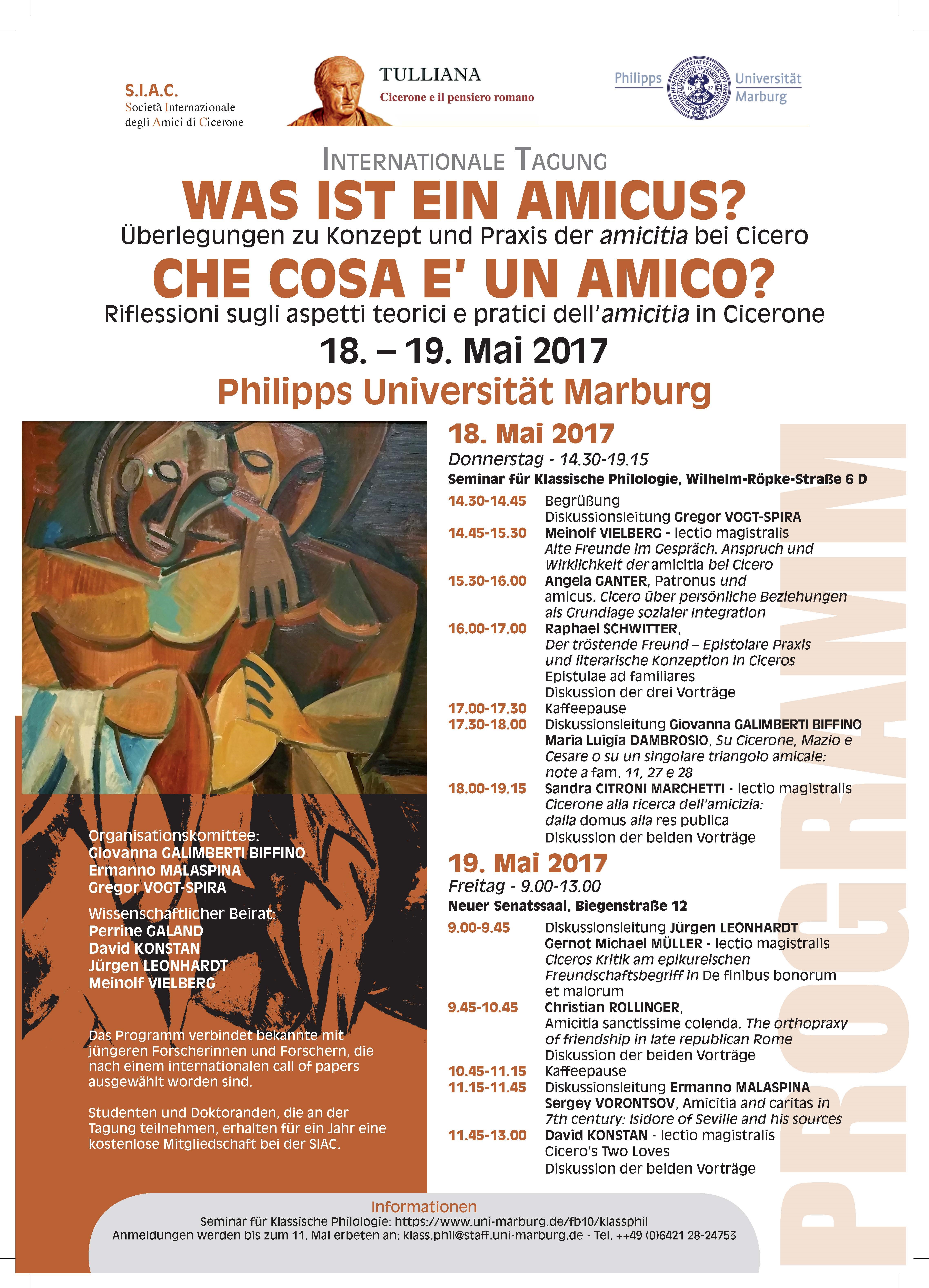Der tröstende Freund - Epistolares Rollenbild und kommunikative Verhaltensweise in Ciceros Epistulae ad familiares - The Consoling Friend: Epistolary Role Model and Communicative Behaviour in Cicero's Epistulae ad Familiares
DOI:
https://doi.org/10.13135/2532-5353/2506Abstract
Schlüsselwörter: Cicero; consolatio; letters; friendship; practice of communication.
Zusammenfassung: Tröstender Zuspruch war innerhalb der prekären, von Empfindsamkeiten geprägten aristokratischen Freundschaftskultur der späten römischen Republik eine anspruchsvolle und komplexe Angelegenheit. Besonders in Briefen – der Kommunikationsform, in der sich die römische Oberschicht üblicherweise verständigte, wenn ein persönlicher Kontakt nicht möglich war – war die tröstende Zuwendung an einen Freund mit gewissen Risiken verbunden. Um den Trauernden nicht zu brüskieren, genügte es nicht, sich in den psychischen und emotionalen Zustand des Adressaten zum Zeitpunkt des Brieferhalts zu versetzen, vielmehr musste die Tonlage und Argumentationsstrategie des Briefs am sozialen Status des Adressaten angepasst und das spezifische Nähe-Distanzverhältnis zwischen den beteiligten Partnern berücksichtigt
werden. Anhand der in Ciceros Epistulae ad familiares enthaltenen Trostschreiben de morte werden im vorliegenden Beitrag – in Abgrenzung zur traditionell dominanten philosophischen adhortatio – Höflichkeit, Respekt und Taktgefühl als die zentralen soziokommunikativen Merkmale der litterae consolatoriae der römischen Nobilität der Späten Republik herausgestellt.
Abstract: Offering consolatory advice and comfort was a highly delicate task that potentially could threaten the precarious amicitia relationship between Roman aristocrats of the Late Republic. Especially in letters – the means of communication to which Cicero and his peers usually turned if personal conversation was impossible – consoling a friend was quite challenging. In order to avoid offending the often thin-skinned bereaved, the writer had to consider the mental and emotional condition of the addressee, and most importantly to pay respect to his social status. As the consolatory letters de morte preserved in Cicero’s Epistulae ad familiares show, epistolary consolation in late republican Rome was characterized by a specific communicative strategy based upon politeness and the conveyance of personal affection rather than on philosophical exhortation and rebuke, which
traditionally dominate literary consolation in Greek and Roman Antiquity.
Downloads
##submission.downloads##
Pubblicato
Come citare
Fascicolo
Sezione
Licenza
Gli autori che pubblicano su questa rivista accettano le seguenti condizioni:
- Gli autori mantengono i diritti sulla loro opera e cedono alla rivista il diritto di prima pubblicazione dell'opera, contemporaneamente licenziata sotto una Licenza Creative Commons - Attribuzione che permette ad altri di condividere l'opera indicando la paternità intellettuale e la prima pubblicazione su questa rivista.
- Gli autori possono aderire ad altri accordi di licenza non esclusiva per la distribuzione della versione dell'opera pubblicata (es. depositarla in un archivio istituzionale o pubblicarla in una monografia), a patto di indicare che la prima pubblicazione è avvenuta su questa rivista.


 Ciceroniana On Line è riconosciuta dall'ANVUR (Agenzia Nazionale di Valutazione del sistema Universitario e della Ricerca) come rivista di CLASSE A per le Scienze dell’antichità, filologico-letterarie e storico-artistiche (
Ciceroniana On Line è riconosciuta dall'ANVUR (Agenzia Nazionale di Valutazione del sistema Universitario e della Ricerca) come rivista di CLASSE A per le Scienze dell’antichità, filologico-letterarie e storico-artistiche ( La rivista è inclusa in DOAJ. L'elenco delle riviste DOAJ è disponibile all'indirizzo
La rivista è inclusa in DOAJ. L'elenco delle riviste DOAJ è disponibile all'indirizzo  La rivista è indicizzata in
La rivista è indicizzata in  La rivista è inserita in ERIH PLUS. L'elenco ERIH PLUS delle riviste è disponibile all'indirizzo
La rivista è inserita in ERIH PLUS. L'elenco ERIH PLUS delle riviste è disponibile all'indirizzo 
